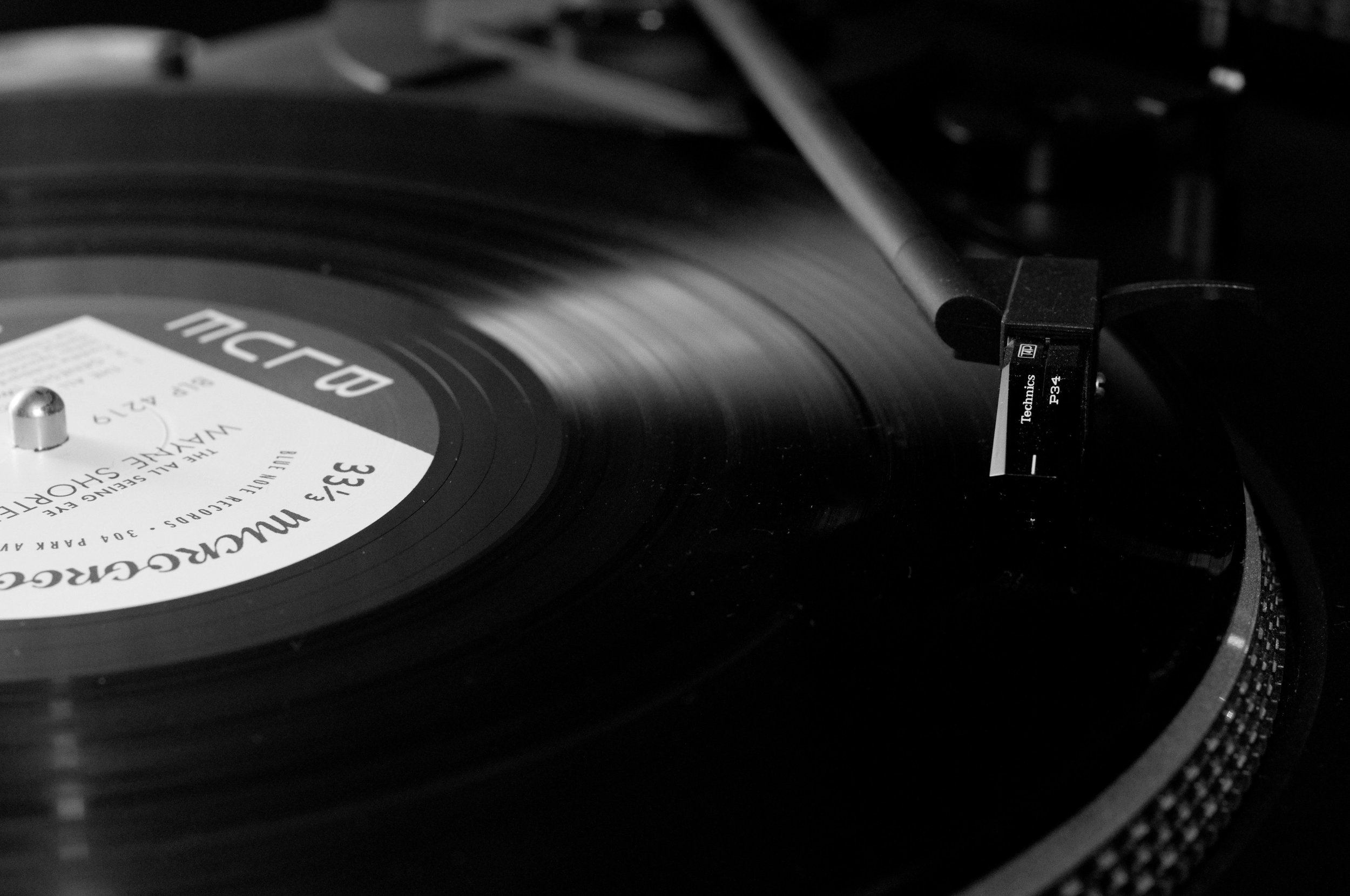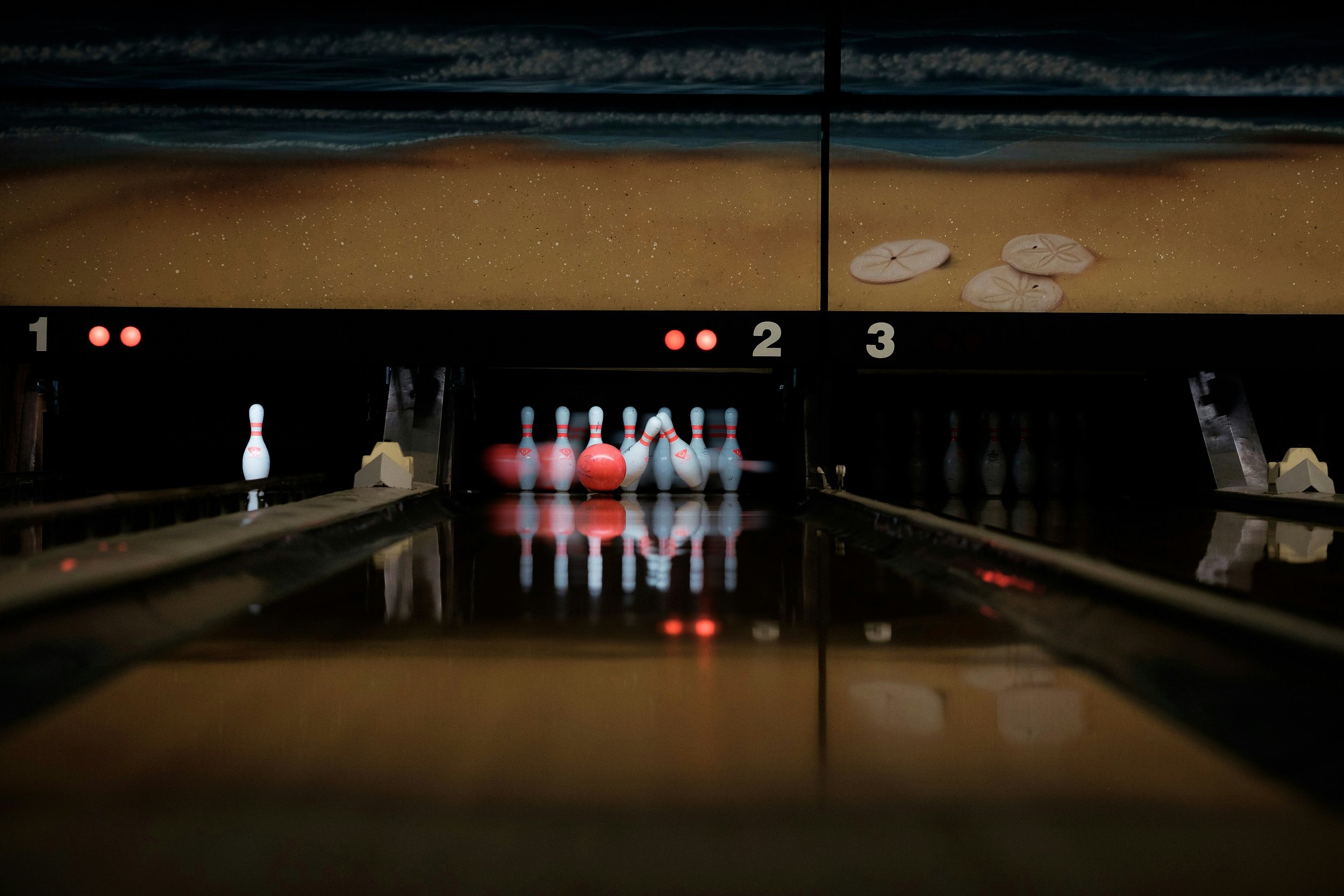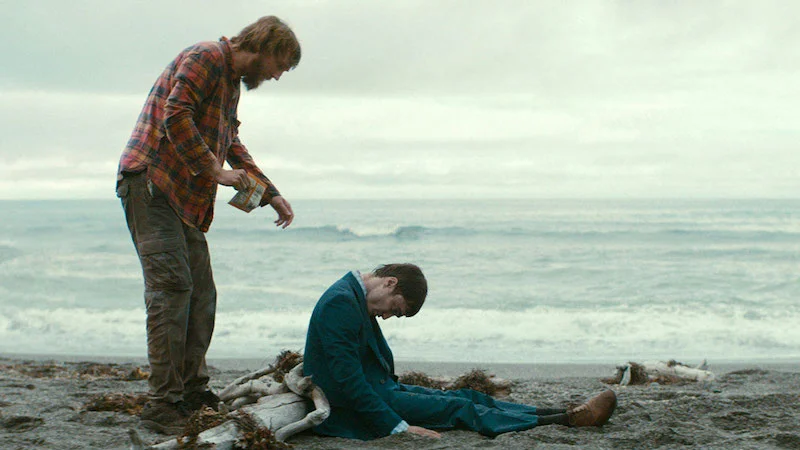FICTIONThe Disappearing ActorNick McGinley
He couldn’t quite explain it, but Aidan felt that if he didn’t look at himself in the mirror, to really look, to shore up any and all doubts, to burn the motivation coming from his eyes into his psyche, if he didn’t have a proper stare to recharge his identity, oh about, once every twenty minutes or so, he’d disappear.
This was problematic as sometimes it was hard to get to a mirror in time and a little hand-mirror - like the ones women use to touch up their make-up - wouldn’t do because he had to stand before it and really commune with his own physicality. He didn’t need a full, head-to-toe-clothes-shop-job, waist-up was fine for his purposes, but still, a fairly large mirror was required to restore his own tenuous and oft-waning sense of self.
Aidan was a member of an actors' co-operative called In-the-Mix where they'd take it in turns to man or woman the office and be agent for the week. An agency without agents. In his opinion, it was like a gang of children in a treehouse answering an imaginary phone about makey-uppey jobs that paid fictional money. The fictional money part was true. By his reckoning, actors were the only craftspeople regularly asked to work for free, as it would be ‘good exposure’ for them. In a similar corruption of language, ‘profit-share’ shows littered his colleagues’ CVs and Aidan felt that this misnomer was up there with friendly fire for toxic double-speak. He'd had crooked agents and stupid agents and lazy agents, but anything was better than being represented by other actors. The whole point in agents was to have someone on hand who wouldn’t gratefully take the first derisory offer. An able agent was that attack-dog cross between salesman, accountant and lawyer – no actors he knew could be thus described.
At first, he enjoyed the camaraderie, the sense of doomed community, but that collegial spirit would evaporate every time someone got a gig. Perhaps the worst thing was being in the chair the day a part he could play came in – there’s never a dignified way of suggesting yourself to a casting director – again, that's what agents are for.
He'd been avoiding the place entirely. Madeleine had filled in for him on the roster.
He had a long mirror session before he left the flat to see himself into town: he looked into his own pale blue eyes. He did the inspection tour. His small straight nose. His full lower lip. His tidy ears. His firm jawline. His hint of stubble. His care-rumpled brow. His dark-blonde hair in need of a cut. It was as if when his face had been assembled with all of these quality elements, they combined to create less than the sum of their parts. The eyes were set a little deep. The clear skin looked a little blank. He wondered what precisely it was that made it difficult for people to really see him, to sit up and take notice.
It took him half-an-hour to walk to Aungier Street from Harold’s Cross. He mounted the steps to the office. He had twenty-to-one odds of no Madeleine. He pushed open the door and there she was.
'Hey Stranger.'
'Hey Maddie, how are you getting on?'
Madeleine was a lissom girl from Leitrim with a strong chin and a disconcerting mid-Atlantic accent. She was pushing thirty with nothing major under her belt. The worst of it was, Madeleine could really act.
'Oh hanging in there. Glad you dropped by actually, we've been worried about you.'
'Just been working on a project at home.'
'A project?'
Each one of the twenty members had to hold out hope that it would be one of their own that might save them. He had tried to write roles for himself, but his own scripts never got beyond the blueprint stage.
'Well, early days, you know – anything on the wires here?'
Aidan began to concede to himself that maybe his existential mirror issue was connected to a work life that had gone from feeling like optimistic longshot gambling to utter deadened futility in under three years. He snuck a look down at the black obsidian surface of his phone for a quick reflection top-up.
Madeline sat forward to change her shoes under the table.
'We should have a read-through.'
'Yeah, when I'm done. Yes, absolutely.'
He could feel the grey oblivion creeping up his body. In a few minutes, it’d be a wonder if
Madeline could even discern his shape in the air. She reached over for her bag.
‘Maddy, do you mind if I just nip into the loo?’
He knew he had to steel his nerves before he made the daily list of hustle-calls.
‘I’m pretty eager to get going now that you’re finally here, Aids.’
Maddie still hadn’t grasped why Aido, Aidinio or even Aidanovich were all reasonable slang-names for him, but not something that brought a global sexually-transmitted pandemic into the room on a quasi-American accent. But perhaps he hadn’t given her enough credit and she was doing it on purpose.
‘Just, please give me a minute.’
He ducked out before she could argue and closed over the bathroom door. Already, in this safe place, his heart rate was returning to normal. He checked his eyes in the round mildewed mirror – the porthole to his soul: he was still there, just about. Aidan stared at the edges of himself and the space around the edges where he and the world met one another. He peered at the shape of a receptacle devoid of any real spirit, gravitas or animal heft. How could other people really see him if he couldn’t really see himself? It was as if they guessed at this nothingness inside of him that grew to obliterate what was so tenuously before them.
He had lost the knack for walking into rooms, rooms generally, never mind audition rooms. Too much or too little, too prepared or too throwaway. He tried not to care and he came across as arrogant. He tried to enter considerately and was treated like wallpaper which sent him from passive-to-aggressive in 60-seconds-flat. He tried to come to auditions straight from seeing people, so the recent social contact would smooth out his creases – like when people didn’t care how the world perceived them just after sex: the sheen was still on. If he could attain that level of vibe control, he'd be back, but he hadn’t been with a woman in months. Yet anything calculated like that always seemed to rebound on him anyway. He was trying to trick himself and he was a sceptical audience. If the definition of charm was enjoying your life and conveying that joy to others, he had lost his charm: he hadn’t enjoyed life for a very long time.
Madeline knocked on the door. 'Listen, Aidan, you wouldn't be a pet and do the rest of the afternoon? It's a flatline, nothing-doing, you can read a book…’
‘I know, I owe you.’ Aidan opened the door.
She was already clattering down the stairs. 'Yep and it’s your turn to buy bog roll and coffee. Later, sweetheart.' Her words rang in the stairwell.
He stepped into the office and looked out the window.
'And windowlene,' she shouted back up.
He sat at the desk and scanned through the inbox: no commercials, the theatre companies were all sticking to their regulars and zip on production. As he looked at the faces of his co-operative partners on the wall, he felt so disheartened to be still lumped in with these wannabes, while at the same time, he no longer knew if he was any better than them. He knew he wasn’t better than Madeleine and yet the taint of failure clung to her most oppressively because if she couldn’t break through, with all her talent, then it was somehow more her fault than the rest of them.
To outward, prying eyes, he had a tribe, but the common feeling was only patina-deep. He liked actors, he liked the company of actors and he'd far prefer to be stuck in a lift with one than most other occupation types, but he couldn't ever quite trust them or really take them seriously, which were funny feelings to have towards his chosen colleagues and therefore himself.
He pressed send on the newsletter without proofreading it.
Then, the phone rang.
He waited four rings before he picked up. ‘Hello, In-the-Mix-’
‘Hi, this is Christina Brabazon and I’m afraid I’m in a bit of a bind. I’m here at the Central Hotel and we’ve had a few drop-outs today, so some slots have opened up.’
‘Great. Eh. Wonderful.’ Even though Aidan was a trained actor, he was finding it difficult to make vowel sounds without choking.
‘It’s a strong supporting part on a feature – a man in his mid-thirties, craggy, slightly beaten-down. I’m looking at your site now, but perhaps some of the headshots aren’t quite up-to-date?’
He cleared his voice, lest he squeaked or bellowed down the line that connected them from one end of the street to the other. ‘Let me see – well, Aidan Treacy would be perfect.’
‘Do you think you could get him to come down here straight away?’
Aidan’s feet started jumping involuntarily under the table.
‘He works nearby, so it shouldn’t be a problem.’
‘Anyone else? I see Will Grainger might suit it too?’
‘No – I mean, he would of course, but Will’s on tour at the moment.’
‘Oh.’
‘In the West – mobile coverage is very poor where he is.’
‘Right – so I’ll expect Aidan within the hour?’
‘Precisely.’
‘And can I take your name?’
‘Will.’
‘Will?’
‘Yeah – different Will, I’m new. Not on the site yet.’
‘And what age are you?’
‘Twenty.’
‘Ah – alright, Different Will, another time then.’ And with that, Ireland’s premier casting director, a woman who had never personally contacted the In-the-Mix offices before, rang off. Everyone else in Dublin must have been either sick or dead.
Aidan walked slowly down the street listening to his own breathing. The adrenaline had sharpened his focus to a fine, tingling point. He watched his reflection in the shop windows as he passed. It was hard to do so without collisions. The lunchtime crowds on the pavements kept making him change course. He couldn’t build up a walking rhythm – it was all stop-start staccato. Why didn’t they change course? Why did he have to give way? Aidan crossed the street in front of a white delivery van, barrelling along, twenty yards off, the driver smiling down at his phone, not seeing the boy in the yellow t-shirt about to step off the kerb on the far side. The boy was transfixed by a poster of a rugged man in the hiking shop window. The boy’s mother, too late, saw him lurch beyond her grasp. But Aidan was there. Aidan knew what to do. He pivoted on his left foot and intercepted the tackle, lifting the boy roughly by his armpit back through the air and onto the pavement. The van whooshed by, the driver oblivious. The boy was shocked. The mother looked up at Aidan with a smile that he hadn’t experienced before. He nodded and strode on.
Aidan sat on a chair in the hall, a styrofoam tea at its foot. He hadn’t had time to prepare anything, which his interrogators knew, so there was that. But there was also the glowing realisation in him that he had never just wanted to be an actor – he had wanted to be the hero the actor was playing. And now he had done it – he had seized his chance. He was about to audition for the biggest part of his life, the kind whole careers were built on and he wasn’t fazed a bit. For hadn’t he already just played the central role in the best drama of his life?
His name was called. He snapped the steel door handle down and pushed, glancing slowly up as he moved. He felt his calm presence spread out across the space.
'Aidan,' he announced with a pleasingly gruff sandpaper rasp that doubled as a neat disguise to his In-The-Mix phone voice.
He held up his hand in general greeting. The eyes he met were welcoming.
And when he sat down facing the camera, the dark shape in the lens reminded Aidan that for as long as it was pointed at him, he’d never fade again.
Nick McGinley is an Irish writer. His black comedy crime novel 'The Casting Director' is out now on Kindle. His writing has appeared in Stand Magazine, Film Ireland and The Irish Times. He is currently working on his second novel and first collection of short fiction.













